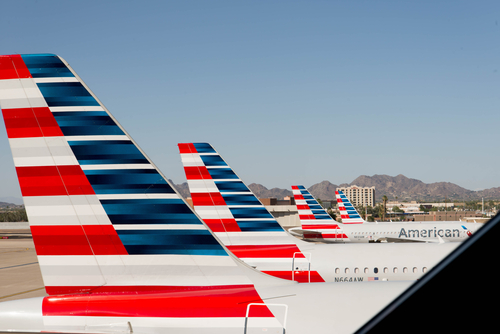After more than two years of investigating trade violations to the Open Skies agreements by the United Arab Emirates (UAE) and Qatar, members of the U.S. aviation industry and Congress are urging the Trump Administration to enforce action against the Gulf carriers’ unprecedented treaty violations and protect American jobs.

The United States has negotiated Open Skies agreements with more than 100 countries from across the globe. The agreements eliminate government interference in the commercial decisions of air carriers, providing airlines with operational flexibility on routes, capacity and pricing. As a result, Open Skies agreements have expanded international travel to and from the United States, while boosting economic growth and job creation.
Indeed, Open Skies agreements have generated at least $4 billion in annual economic gains to travelers, according to the Brookings Institution.
The UAE and Qatar have provided more than $50 billion in government subsidies to their state-owned airlines in an attempt to dominate global aviation and international air travel, aviation experts say. The airlines – Emirates, Etihad Airways and Qatar Airways – are increasingly adding international routes to the United States from Europe and Asia, such as round-trip flights between New York City and Milan, Italy as well as nonstop flights between New York City and Athens, Greece, which would not be possible without financial aid.
“This makes it incredibly hard for American companies to compete without the regular rules of business,” Jill Zuckman, chief spokesperson for the Partnership for Open & Fair Skies, said in an interview with Financial Regulation News. “Our concern is if the subsidies don’t stop and we don’t enforce the [Open Skies] agreements, we lose jobs and are pushed off international trade routes, causing a snowball effect for economic challenges we are already facing because of these illegal subsidies.”
According to an analysis from the Partnership for Open & Fair Skies, every international route lost due to a Gulf carrier-subsidized flight results in a net loss of 1,500 U.S. jobs.
“India is a great example,” Zuckman said. “All three U.S. carriers [Delta, United and American Airlines] used to do a lot of work there. With unfair competition, United went down to two flights a day while American and United removed all routes. It’s the UAE and Qatar now because we were so badly undercut.”
A bipartisan Congressional delegation urged Secretary of State Rex Tillerson and Secretary of Transportation Elaine Chao to enforce the Open Skies agreements with Qatar and the UAE. “These new routes are coming at the expense of the U.S. airlines’ international networks, American jobs, and ultimately will harm consumers,” the April 28 letter stated.
“The subsidies are also in direct violation of our international aviation ‘Open Skies’ agreements with the UAE and Qatar as the subsidies do not give U.S. carriers and their employees a fair and equal opportunity to compete,” the letter said.
Passenger bookings for international flights on U.S. carriers and their joint venture partners often experience a double-digit decline after a Gulf carrier enters a market, such as in the case of Seattle, Washington D.C., Orlando and San Francisco, according to an analysis from Compass Lexecon.
Daniel Carey, president of the Allied Pilots Association (APA), said that American jobs are not the only thing that are at risk with the increase of those trade violations – U.S. national security is also at stake.
The U.S. Civil Reserve Air Fleet (CRAF) program, a Department of Defense program to augment military aircraft capability during a national defense-related crisis, allows for the transportation of thousands of troops and tons of cargo to domestic and international destinations during crucial and pivotal times of national security.
“As the governments of the UAE and Qatar flood their airlines with subsidies — predatorily expanding and dumping seats into markets that their airlines would not be able to serve if the playing field was level — U.S. airlines lose and forgo international routes, and thereby downsize their CRAF mission-capable aircraft fleets,” Carey said in a May 30 op-ed piece for The Hill. “This undercuts the U.S. military’s ability to call upon U.S. airlines for support for military and humanitarian missions.”
The Partnership for Open & Fair Skies, the APA and U.S. airline workers, who have sent more than 60,000 letters, emails, tweets and other messages, are engaging the Trump Administration to stand up for American jobs against the Gulf carriers’ subsidies and treaty violations.
“We’ve been having conversations and appreciate the receptive welcome to talk about this and get to the right place with the new administration,” Zuckman said. “They have a lot on their plate, but we feel good about President Trump enforcing a stand for American workers. This is the perfect test case. A perfect example where he could emphasize the protection of U.S. jobs.”